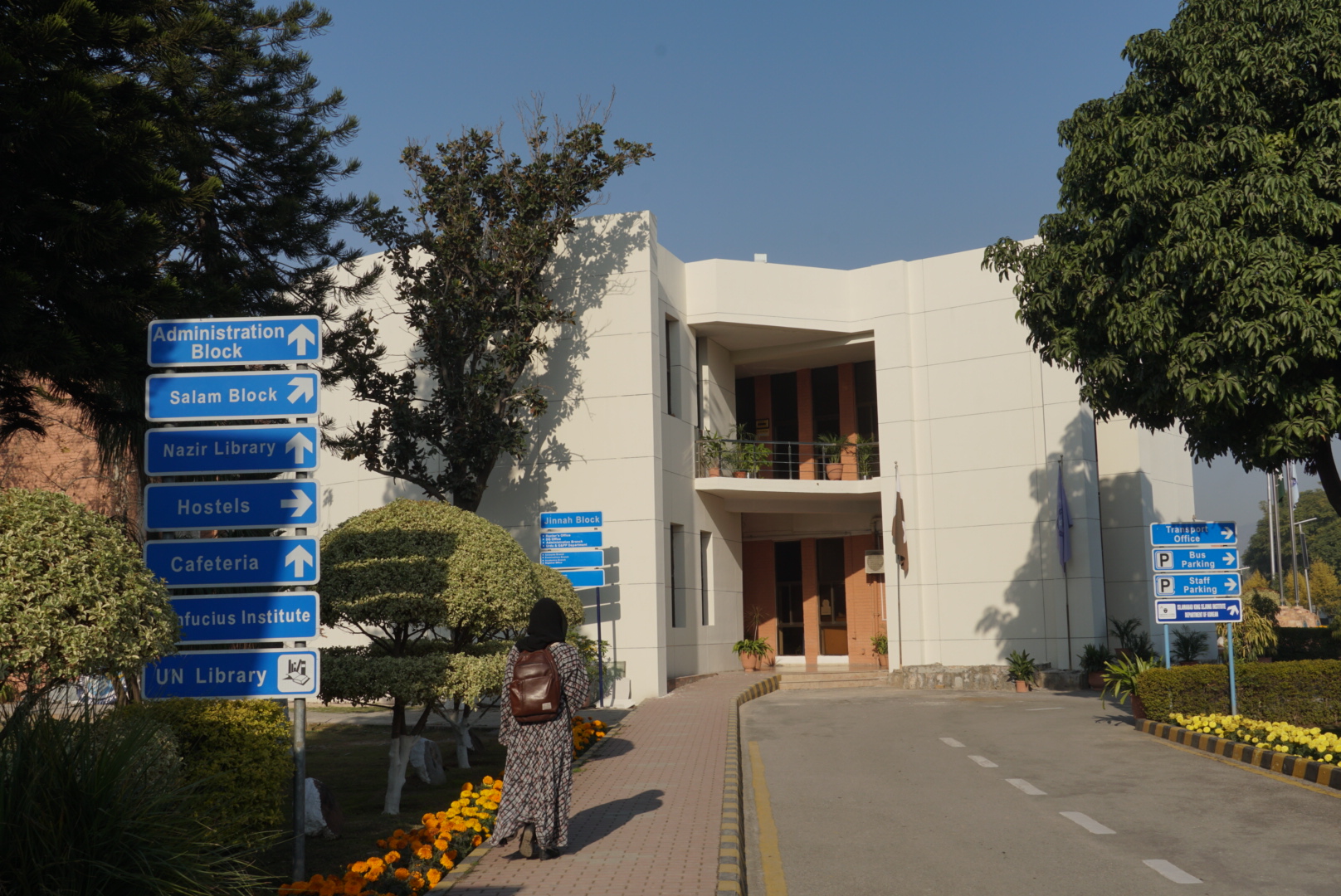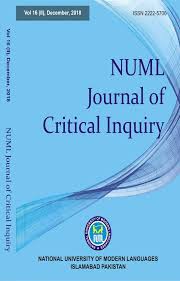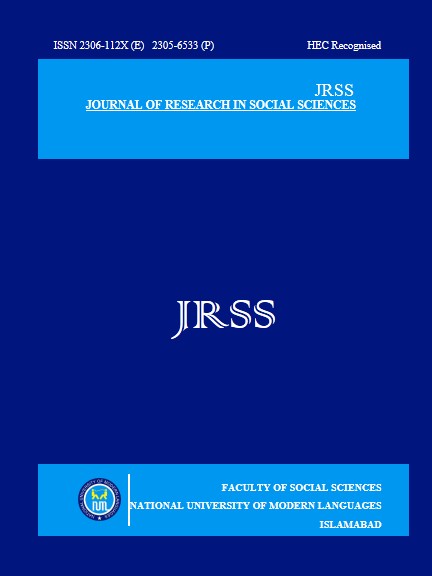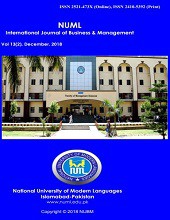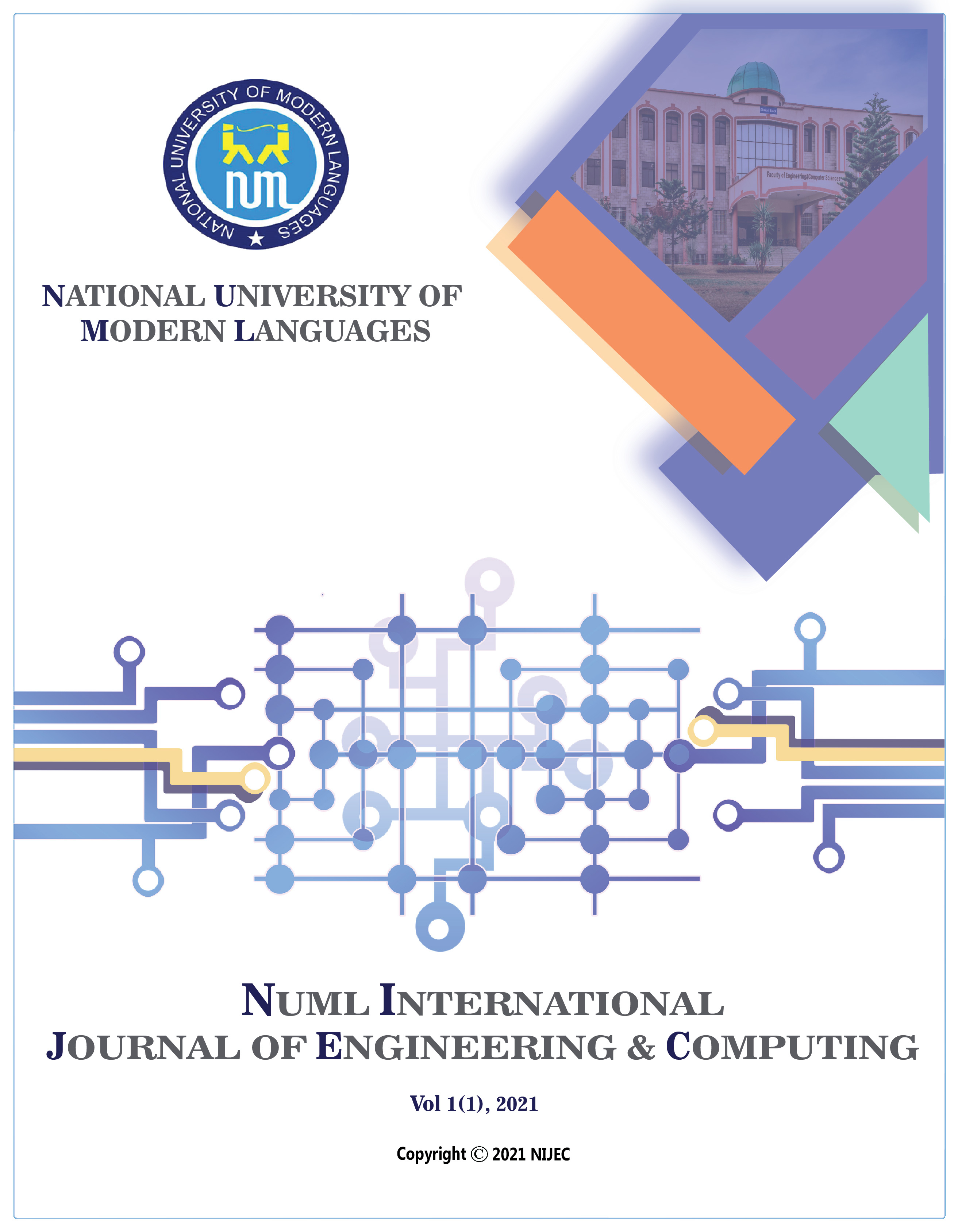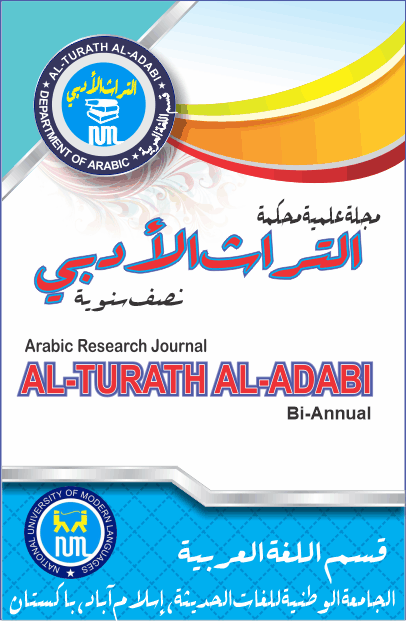Program Information
| Duration | : | 4 years |
| Level | : | BS |
| Shift | : | Morning |
| Credit Hrs | : | 133 |
| Semester | : | 8 |
Similar Programs
BS Computer Engineering
Overview:
BS Computer Engineering Program
Department of Electrical Engineering - National University of Modern Languages (NUML)
Head of Department: Dr. Farhan Sohail
Introduction
In today's rapidly evolving technological landscape, the boundaries between traditional disciplines are dissolving. Electrical Engineering and Computer Science are merging to create a powerful force for innovation. Hardware and software are no longer separate entities but work together seamlessly to power everything from smartphones and autonomous vehicles to smart cities and intelligent infrastructure. This interdisciplinary approach is fueling breakthrough developments in embedded systems, artificial intelligence, Internet of Things, cyber-physical systems, and intelligent hardware design.
The BSCE program at NUML is designed to produce versatile engineers who are equally proficient in hardware design and software development, with a strong foundation in modern technologies including artificial intelligence and machine learning. Our graduates are equipped with the comprehensive skillset needed to tackle complex challenges—whether designing intelligent embedded systems, developing AI-powered applications, creating IoT solutions, or applying cutting-edge techniques to both hardware architecture and software engineering.
This unique versatility makes our graduates industry-ready across multiple domains. They can seamlessly transition between hardware and software roles, integrate AI and ML capabilities into embedded platforms, and apply modern computational techniques to optimize system performance. In an era where every device is becoming smart and connected, this breadth of expertise is invaluable.
The program is accredited by the National Computing Education Accreditation Council (NCEAC), ensuring that our curriculum meets the highest national standards and aligns with the strategic vision of HEC. This accreditation recognizes the program's excellence in merging electrical engineering and computer science to propel technological innovation and address the complex challenges of the 21st century.
The BS Computer Engineering Program is offered by the Department of Electrical Engineering, which brings over 16 years of proven excellence in engineering education. Under the leadership of Dr. Farhan Sohail, the department has cultivated a dynamic learning environment enriched with modern laboratories, advanced infrastructure including dedicated AI/ML facilities, and industry partnerships that bridge the gap between academia and real-world applications.
Our commitment to producing globally competitive engineers is reflected in our international collaborations and student exchange programs with Duzce University (Turkey) and Dong-A University (South Korea). These partnerships offer students invaluable opportunities for cross-cultural learning, research collaboration, and international networking that enhance their professional prospects in the global technology landscape.
Key Highlights:
- NCEAC accredited program ensuring quality and industry relevance
- Comprehensive training in both hardware engineering and software development
- Strong foundation in AI, Machine Learning, and modern computational techniques
- Versatile skillset enabling careers in IT, embedded systems, AI development, and hardware design
- Hands-on experience in state-of-the-art laboratories with modern tools and platforms
- Industry-ready graduates capable of applying cutting-edge techniques to real-world problems
- International exposure through global university partnerships
- 16+ years of departmental excellence in engineering education
Department Vision & Mission
Vision: To become a centre of excellence in producing competent graduates for contributing value to the engineering knowledge, economy, and society.
Mission: To motivate the graduates to become highly skilled professional engineers acquainted with knowledge of emerging trends in engineering. It also aspires to produce socially and ethically responsible graduates having innovative research skills to effectively contribute to industrial and societal progression.
University Mission
- To become a leading institution in creating knowledge and competencies for inclusive development. (PEO 1, 2, 3)
- To foster creative pedagogy, innovative research, and inclusive communication. (PEO 1, 2, 3)
Program Educational Objectives (PEOs)
- PEO1: Technical Proficiency and Innovation — Graduates will demonstrate a high level of technical expertise and professional competence in computer engineering, enabling them to design, analyze, and implement innovative solutions to complex engineering problems using modern engineering tools and practices.
- PEO2: Leadership and Collaboration — Graduates will possess strong communication and leadership skills, enabling them to work effectively in multidisciplinary teams and lead projects to successful outcomes in diverse professional environments.
- PEO3: Professionalism and Lifelong Learning — Graduates will understand and commit to professional ethics, societal responsibilities, and lifelong learning, continually developing their skills and knowledge to ensure their sustained contribution to the advancement of computer engineering and related disciplines.
Program Learning Outcomes (PLOs)
PLO Coverage Matrix
| Domain | Mapped PEO(s) |
|---|---|
| Academic Education | PEO 1 |
| Knowledge for solving computing problems | PEO 1 |
| Problem Analysis | PEO 1 |
| Design/Development of Solution | PEO 1 |
| Modern Tool Usage | PEO 1 |
| Individual and Teamwork | PEO 2 |
| Communication | PEO 2 |
| Computing Professionalism and Society | PEO 3 |
| Ethics | PEO 3 |
| Lifelong Learning | PEO 3 |
Admission Requirements - BS Computer Engineering Program
Eligibility Criteria: Minimum 60% marks in Intermediate / 12 years schooling / A-Level (HSSC) or Equivalent with Mathematics are required for admission in the BS Computer Engineering Program.
Students of F.Sc. Pre-Medical shall be required to pass two additional Mathematics courses to make up for the deficient background in Mathematics at HSSC.
Additional Mathematics Courses
| Course | Semester | Requirement |
|---|---|---|
| Pre-Math I | 1st Semester | Required for F.Sc. Pre-Medical students |
| Pre-Math II | 2nd Semester | Required for F.Sc. Pre-Medical students |
Eligibility:
Admission Requirements - BS Computer Engineering
Admission Requirements
BS Computer Engineering Program • NUML
Eligibility Criteria
Minimum 60% marks in Intermediate / 12 years schooling / A-Level (HSSC) or Equivalent with Mathematics are required for admission in the BS Computer Engineering Program.
Students of F.Sc. Pre-Medical shall be required to pass two additional Mathematics courses to make up for the deficient background in Mathematics at HSSC.
Additional Mathematics Courses
| Course | Semester | Requirement |
|---|---|---|
| Pre-Math I | 1st Semester | Required for F.Sc. Pre-Medical students |
| Pre-Math II | 2nd Semester | Required for F.Sc. Pre-Medical students |
Courses:
| S.No | Course Code | Subject | Credit Hours |
|---|---|---|---|
| 1 | CEPF-126 | Programming Fundamentals | 3+1 |
| 2 | CSIT-102 | Applications of ICT | 2+1 |
| 3 | QRCG-107 | Calculus and Analytical Geometry | 3+0 |
| 4 | QRDS-108 | Discrete Structures | 3+0 |
| 5 | ESFE-101 | Functional English | 3+0 |
| 6 | CEPM-116 | Pre-Math I (for pre-medical students) | Non-credit |
| 7 | CEOP-127 | Object Oriented Programming | 3+1 |
| 8 | CEDB-232 | Database Systems | 3+1 |
| 9 | CEDL-230 | Digital Logic Design | 2+1 |
| 10 | CECV-218 | Complex Variables and Transforms | 3+0 |
| 11 | CELA-219 | Linear Algebra | 3+0 |
| 12 | CEPM-117 | Pre-Math II (for pre medical students | Non credit |
| 13 | CEDS-229 | Data Structures | 3+1 |
| 14 | CEIS-340 | Information Security | 2+1 |
| 15 | CEAI-341 | Artificial Intelligence | 2+1 |
| 16 | CECN-339 | Computer Communication Networks | 2+1 |
| 17 | CESE-335 | Software Engineering | 3+0 |
| 18 | CEPR-220 | Probability and Statistics | 3+0 |
| 19 | CECO-231 | Computer Organization and Assembly Language | 2+1 |
| 20 | NSAP-105 | Applied Physics | 2+1 |
| 21 | ESEW-106 | Expository Writing | 3+0 |
| 22 | SSIS-104 | Islamic Studies | 2+0 |
| 23 | CECA-337 | Computer Architecture | 2+1 |
| 24 | CELC-128 | Linear Circuit Analysis | 2+1 |
| 25 | CEOS-443 | Operating Systems | 2+1 |
| 26 | CENA-233 | Electrical Network Analysis | 2+1 |
| 27 | CESS-338 | Signals and Systems | 2+1 |
| 28 | CEXX-3XX | Domain Elective I | 2+1 |
| 29 | CEXX-4XX | Domain Elective VII | 2+1 |
| 30 | CEED-334 | Electronic Devices and Circuits | 2+1 |
| 31 | CEFL-488 | Foreign Language | 3+0 |
| 32 | CEEXX-3XX | Domain Elective II | 2+1 |
| 33 | CEEXX-3XX | Domain Elective III | 2+1 |
| 34 | CEXX-4XX | Domain Elective IV | 2+1 |
| 35 | CEXX-4XX | Domain Elective V | 2+1 |
| 36 | CEFP-499 | Final Year Project I | 0+3 |
| 37 | CEAA-336 | Analysis of Algorithms | 3+0 |
| 38 | CEXX-4XX | Domain Elective VI | 2+1 |
| 39 | CEPC-442 | Parallel and Distributed Computing | 2+1 |
| 40 | CETW-321 | Technical and Business writing | 3+0 |
| 41 | MSEP-213 | Enterepreneurship | 2+0 |
| 42 | CSFP-499 | Final Year Project II | 0+3 |
| 43 | SSPS-103 | Pakistan Studies | 2+0 |
| 44 | AHPP-212 | Professional Practices | 2+0 |
| 45 | SSCE-210 | Civics and Community Engagement | 2+0 |
| 46 | Nil | Field Experience/Internship | 0 |
| 47 | SSIP-211 | Introduction to Psychology | 2+0 |


